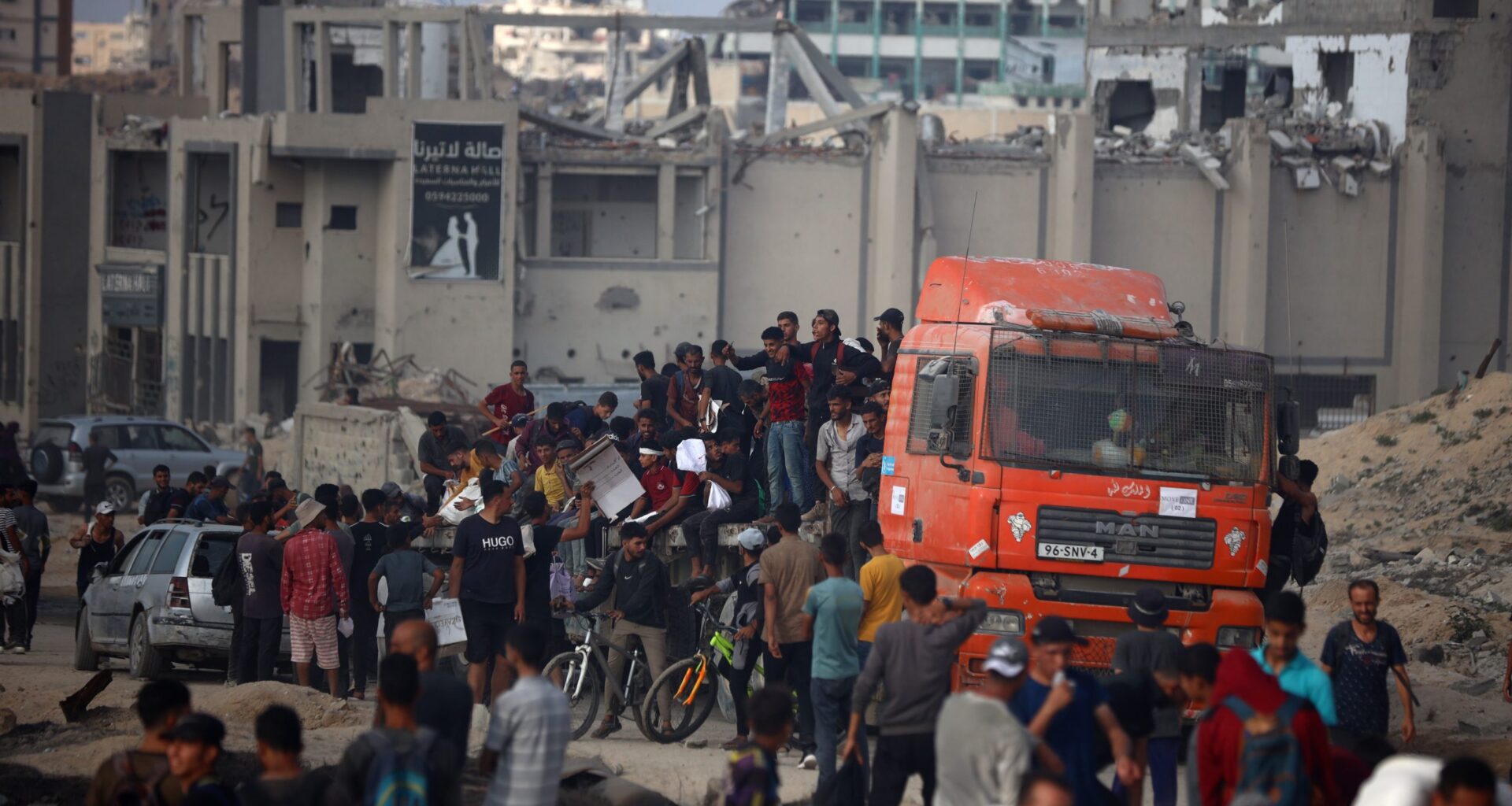Four times fewer aid trucks are entering Gaza from Israel than the EU demands, according to a document the European Commission shared on Wednesday with national capitals.
The document, written by the EU executive and its diplomatic wing, is a fortnightly update on the state of aid flowing into the strip, where humanitarian agencies and international organisations warn a famine is now taking place. This is amid Israel’s war against Hamas.
Israel denies that its military offensive is causing a famine and blames the UN for not distributing the aid it says Hamas regularly steals. Brussels has already slammed Israel for mass killings at four aid sites established by the US- and Israel-backed Gaza Humanitarian Foundation (GHF).
“Between 31 July and 4 August, the UN, and our partners report that 188 trucks were offloaded at crossing points to Gaza,” states the document seen by Euractiv.
However, that is far lower than the roughly 800 trucks per five days that an EU official said should be entering Gaza under the terms of a deal the EU’s top diplomat, Kaja Kallas, recently struck with Israel. Under the deal, details about which are scant, around 160 trucks of aid per day should enter Gaza.
The UN says at least 500 to 600 trucks per day are needed to prevent further starvation.
The document states that Israel argues a much higher number of trucks – 737 – entered Gaza via the two main crossing points at Kerem Shalom and Zikim between 31 July and 4 August. The document says: “Israel includes commercial and GHF operations in its daily counting of trucks.”
It also says that: “Israel continues to make the point that many trucks […] are waiting to be collected by partners for distribution, something that according to the UN is still attributable to poor security environment and other major impediments.”
According to the document, fuel deliveries into Gaza have “increased” and are “enough to sustain critical life-saving operations but [are] not sufficient to allow all humanitarian operations to run.”
In total, 874,000 litres of fuel entered the enclave between 28 July and 4 August, while no fuel was allowed in for three months before July, it notes. “Increase of those quantities is needed urgently,” it adds.
It also notes that COGAT, the Israeli authority responsible for overseeing civilian life in Gaza, has pledged to boost fuel deliveries from 23 to 30 tankers per week. “If implemented, this would mark significant progress,” the document states.
The UN said on Tuesday that “much more fuel is needed daily to run life-saving and emergency operations” in Gaza. “Current levels of fuel are only allowing the UN and its humanitarian partners to function at the bare minimum,” it added.
Three fuel tankers entered Gaza City on Monday, the UN said, which will be “used to power the most critical health, water and sanitation and emergency telecommunication facilities.”
The numbers that the EU shared with diplomats in the document come from the UN, and the Commission says that the EU cannot independently verify the data.
“What we can say is that despite this partial progress, we are not where we would want to be in terms of the number of trucks being able to make their way to the destination,” said Commission spokesperson Anna-Kaisa Itkonen at a press conference in Brussels on Thursday.
“We do not have presence there, we rely on information from our partners, notably the UN,” Itkonen said.
EU humanitarian aid Commissioner Hadja Lahbib has said she is prepared to visit Gaza herself. Israel barred top aid civil servant Maciej Popowski from entering last week.
This is a developing story.
(jp, mm)
